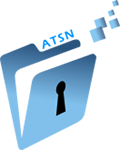All information in one place: Download the symposium flyer.
Symposium proceedings: EPiC Volume 30.
Short papers: RISC Technical Report 14-11.
The 6th International Symposium on Symbolic Computation in Software Science will be held in Gammarth, La Marsa, Tunisia, December 7-11, 2014.
Symbolic Computation is the science of computing with symbolic objects (terms, formulae, programs, representations of algebraic objects etc.). Powerful symbolic algorithms have been developed during the past decades for the areas such as theorem proving, automated reasoning, software verification, model checking, rewriting, formalization of mathematics, network security, Groebner bases, cylindrical algebraic decomposition, characteristic sets, telescoping for recurrence relations, etc.
The purpose of the International Symposium on Symbolic Computation in Software Science - SCSS is to promote research on theoretical and practical aspects of symbolic computation in software sciences. The symposium provides a forum for active dialog between researchers from several fields of computer algebra, algebraic geometry, algorithmic combinatorics, computational logic, and software analysis and verification.
The history of the SCSS starts from internal workshops that brought together researchers from the Theorema Group (leader: Bruno Buchberger) at RISC (Research Institute for Symbolic Computation, Johannes Kepler University, Linz - Hagenberg, Austria), SCORE (Symbolic Computation Research Group, University of Tsukuba, Japan. Group leader: Tetsuo Ida), and SSFG (Software Science Foundation Group, Kyoto University, Japan. Group leader: Masahiko Sato). Later, these workshops grew to involve researchers from the Digital Security Research Unit at the Higher School of Communication of Tunis, Sup'Com (University of Carthage, Tunisia), and the Tunisian Society for Digital Security (leader: Adel Bouhoula). Since 2012, SCSS is an international symposium.
TOPICS
SCSS solicits papers on all aspects of symbolic computations and their applications in software sciences. The topics of the symposium include, but are not limited to the following:
- automated reasoning
- algorithm (program) synthesis and/or verification
- formal methods for the analysis of network security
- termination analysis and complexity analysis of algorithms (programs)
- extraction of specifications from algorithms (programs)
- theorem proving methods and techniques
- proof carrying code
- generation of inductive assertion for algorithm (programs)
- algorithm (program) transformations
- formalization and computerization of knowledge (maths, medicine, economy, etc.)
- component-based programming
- computational origami
- query languages (in particular for XML documents)
- semantic web and cloud computing

